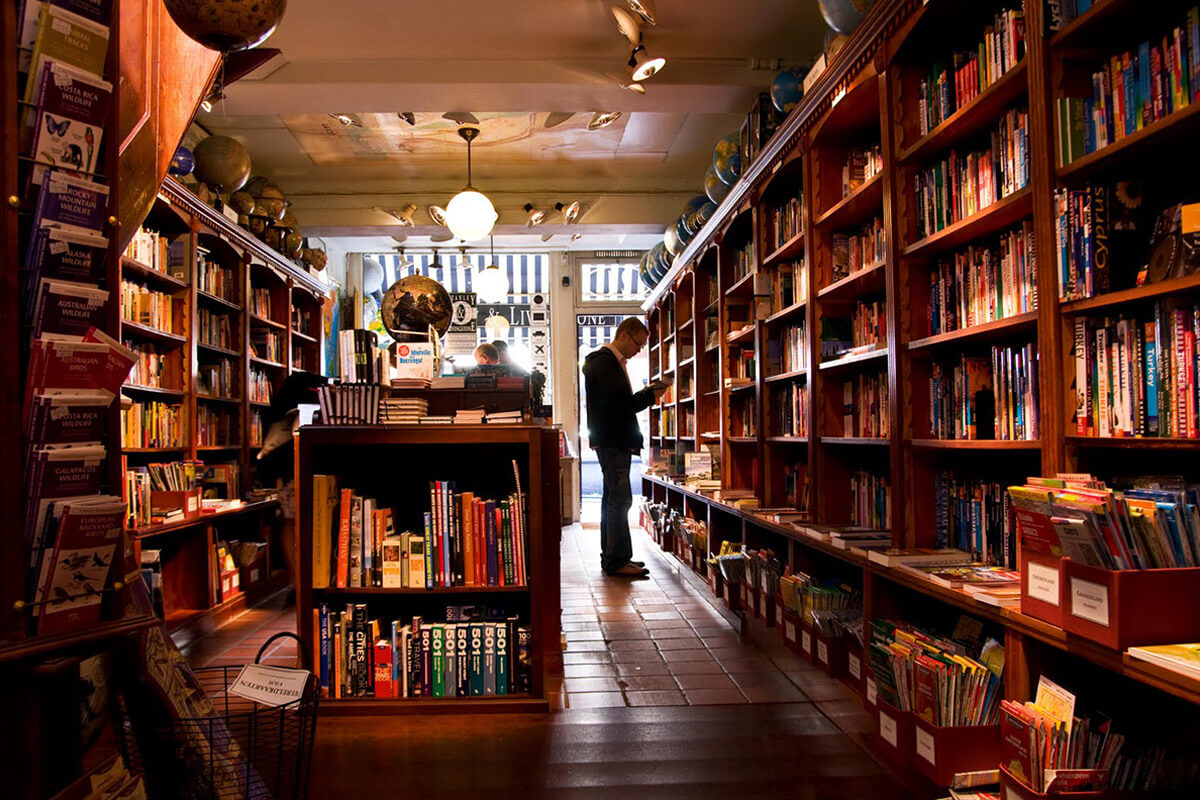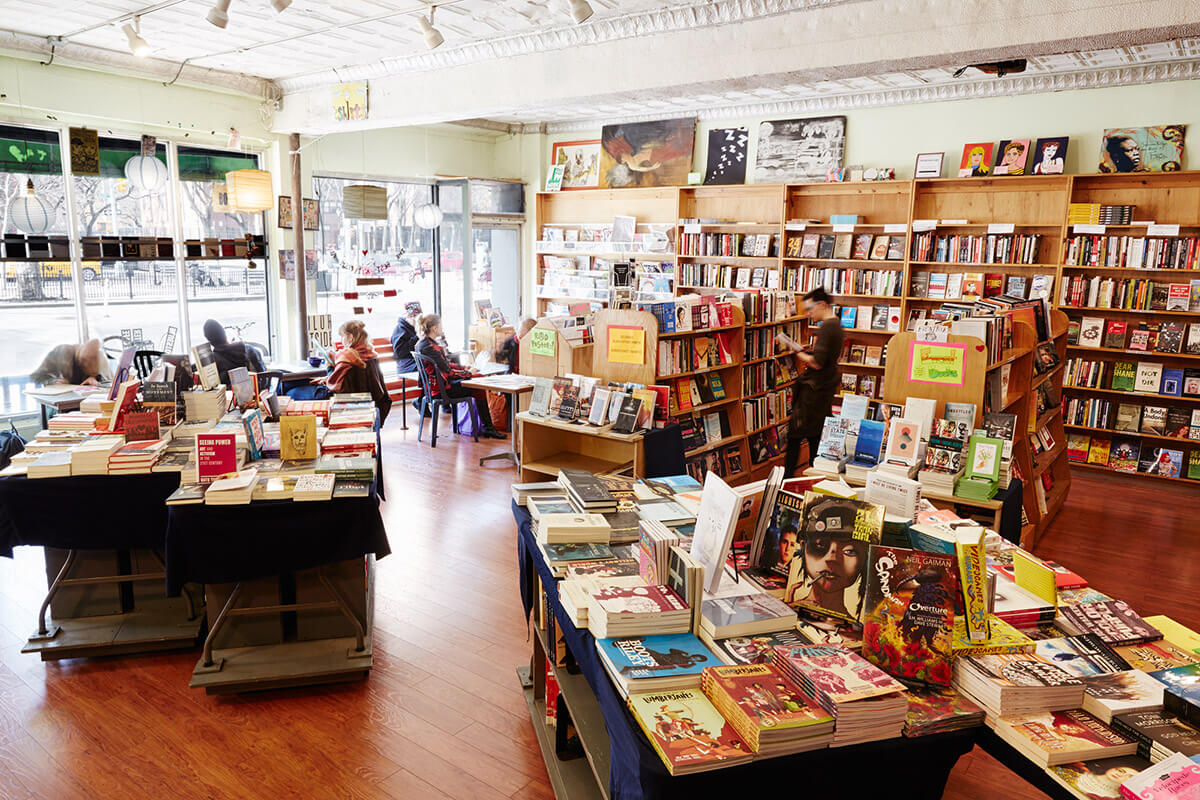Book stores. There is an opinion that with the development of gadgets and the Internet, they become atavistic. Ilya Guzhov, a sales expert at JoinPay, gives answers to the most burning questions about whether there is a future for offline book retail and what are the prospects for the book market in Russia.
— Is there a need to expand the network of offline book stores, given that sales are actively going online?
Ilya Guzhov: the history of the decline of offline book retail began quite a long time ago, almost simultaneously with the digitalization of the population. There are a lot of online services for buying books, and the consumption of book content in digital format is also growing. This is not surprising – it is much easier and more convenient to order a paper book over the Internet or buy an electronic version of it and read it on a mobile phone, tablet, etc.
If we talk about whether it is worth expanding the network of offline book stores, given that book sales are actively going online, then I will say this – it is worth not so much expanding the network, but expanding and searching for new formats of interaction with the buyer. If we look at the modern formats of bookstores – we will see that this is a mix of bookstores and gift shops, office supplies, and other products that accompany books. It is a sad fact that bookstores are no longer interesting to consumers in their pure form. Of course, there is a small segment of those who like to purposefully go to the store, going through all books, rustle and smell the printing paper, but they are few and every year becomes less.

— How long will the format of a traditional offline book store be relevant?
Ilya Guzhov: In addition to mix stores, other formats are now being used to increase offline sales of books. For example, in Moscow and St. Petersburg there is a chain of bookstores "Republic", which has moved away from the usual model of a book store and uses the concept of" shop-club" or "shop - public space" - in addition to selling books, stationery, decorative items and goods for children, they regularly hold book presentations, meetings with authors and autograph sessions, master classes and free lectures on various topical topics. Such formats are more interesting because they involve the audience, and they themselves give an emotion that is becoming more and more valuable in the age of consumption, when not only books, but any other goods have become publicly available and universal (the same properties, different labels, marketing support, and that's all).
And in these conditions, the consumer's focus shifts from the product itself to the emotions that they experience during the purchase process. This is true not only for books, but also for grocery stores or, for example, cafes, which we increasingly began to choose according to how much we like or dislike the seller, the waiter, the atmosphere, the attitude towards us when we come to this place, whether there is live music or, for example, tastings of new goods, vivid presentations of something and other performance. So the story of increasing sales due to positive emotions and involvement in the process is more than relevant.
The ability to be closer and give an emotion is the competitive advantage of offline book retail, which will help to counter the main competitive advantage of online services for buying books-convenience and simplicity.

— In the next two or three years, what will be the proportion between offline and online book stores?
Ilya Guzhov: it is difficult to say what the proportion between offline and online book retail will be in the next 2-3 years. There are two key points to keep in mind here.
1. What unpredictable ways develops presentation of information. Judge for yourself: the information flow has accelerated, people have developed what is called a clip thinking – there is no time to read and think, you need a picture to see everything completely and at once. Or a small series of images, a visual series - again, to save time. Short videos have become more and more popular instead of texts. What happened next? Now, these videos are overlaid with text again, just think of podcasts on Youtube and social networks. Again for convenience people do not want or can not listen, and it is necessary to understand what is happening in the video somehow. So we did a circle in content consumption and came back - we needed text again.
Another story is the appearance of audiobooks, in order to reach an audience that is uncomfortable to watch, but they can listen. And audiobooks are becoming increasingly popular, for example, among drivers, runners, etc
2. The second thing you should remember is what unpredictable ways sales are developing.
Russia is a reading country, and 80% of our population either live in the countryside, where digitalization is much slower, or they are urban residents of the older generation, who also have a hard time with gadgets. And the range of available entertainment is not as wide as that of young people. And the book is the most accessible of them. So they continue to be the main and quite significant categories of consumers of offline books.

You will say: is this some kind of affordable entertainment? Have you seen how much they cost now?! I will answer: I saw it. And there seems to help those who are on a budget, come library, crossbooking, etc. Yes, because of them, instead of five identical books, only one is sold, and four more people read it for free. And it kind of reduces sales. But, on the other hand, we all know the power of a book, a fascinating story - and if you come across an interesting book, then it is no less interesting to read the continuation, other books by the same author or the same series. And when a free read book is so strongly hooked – we are ready to go and buy others that are no longer available for free. And even decent money they are ready to pay, having saved up, having made money with other expenses. So yes, new consumption of content formats of content appears constantly, but sales of this content immediately find their way.
That is why I say that it is unknown what the ratio of offline and online sales of books will be in 2-3 years. But I will definitely not say unequivocally that the books will go 100% online.
And finally. JoinPAY Smart Cash Register will definitely help you increase sales in offline book retail right now. Smart– because it likes to count, take into account and analyze. And it can help offline book retail by automating work with customers – we have cash register equipment. And the software, which collects and displays analytics on sales:
- It will help you identify new and well-sold bestsellers in time.
- Shows when your store has the main customer flow, and when there is dead time and it is worth doing something to increase this flow.
- It will warn you in time that some product is running out and is worth it hurry up with the re-order.

